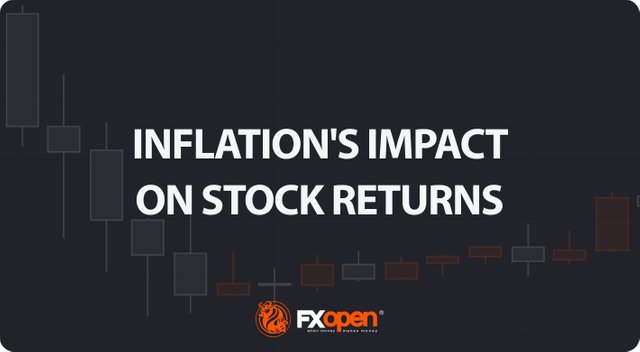
Inflation's pervasive influence on the financial landscape cannot be understated. It affects everything from everyday spending to large-scale investing. This FXOpen article dives into the intricate relationship between inflation and stock returns, unravelling the multifaceted dynamics at play. Join us as we dissect the mechanics of the impact of inflation on the stock market, offering clarity in a world of economic ebbs and flows.
Understanding Inflation
Inflation represents the rising prices of goods and services over time. While a moderate level of inflation is often viewed as a sign of a growing economy, high inflation can erode purchasing power, making everyday items more expensive for consumers. Those trading and investing during high inflation face challenges as it can diminish the real returns on investments.
Stock Returns Defined
Stock returns denote the gains or losses an investor realises from stock investments. These returns typically manifest in two ways: dividends and capital appreciation. Dividends are regular payments made by corporations to shareholders from their profits.
Capital appreciation, on the other hand, refers to the increase in a stock's price over time. It's important to note that stock returns can also be negative if a stock's price decreases. Influencing these returns are a myriad of factors, including company performance, market sentiment, and broader economic conditions.
Mechanisms: How Inflation Affects Stock Prices
Inflation, with its overarching grip on the economy, wields a substantial influence on stock prices. Understanding this dynamic is vital for traders looking to navigate the stock market during inflation. Below, we'll delve into the various mechanisms through which inflation affects stocks.
Read full article visit https://bit.ly/3QMSAAU